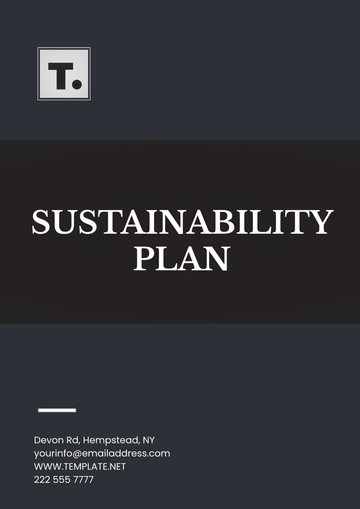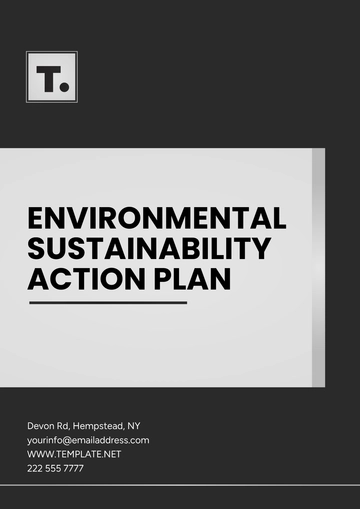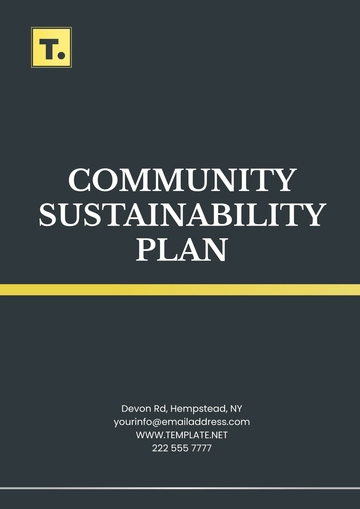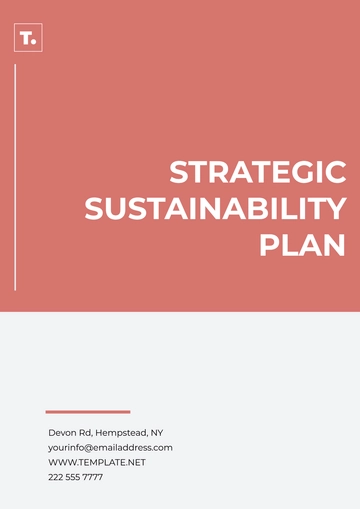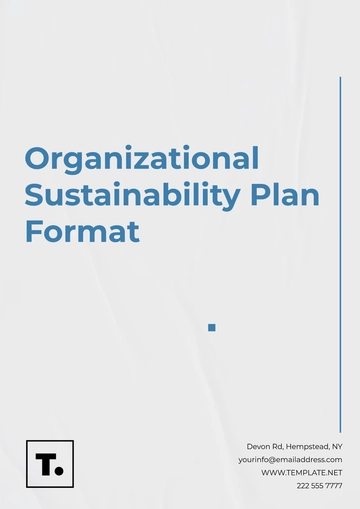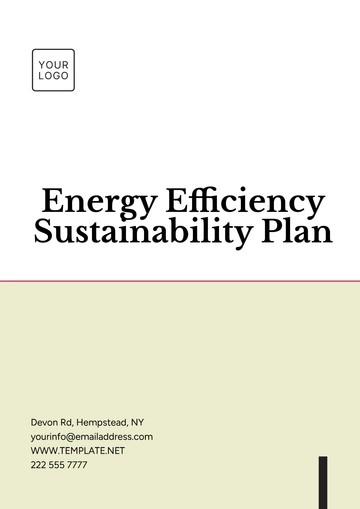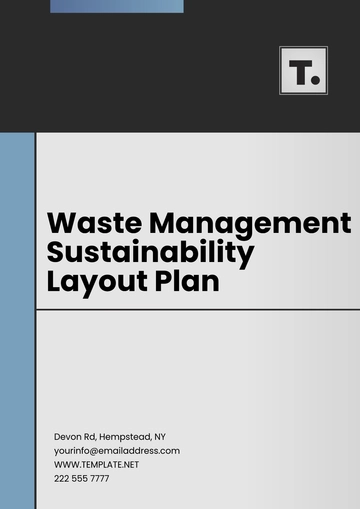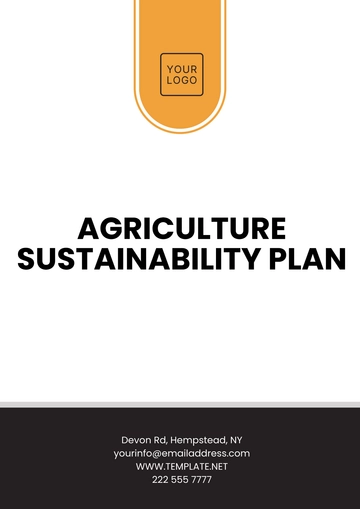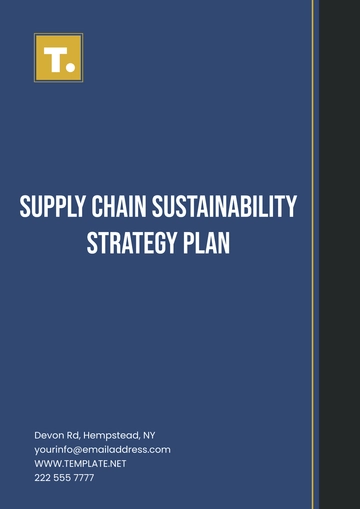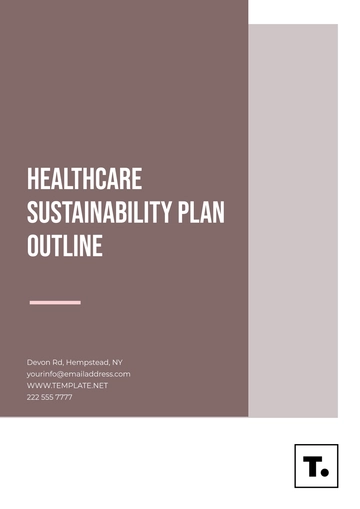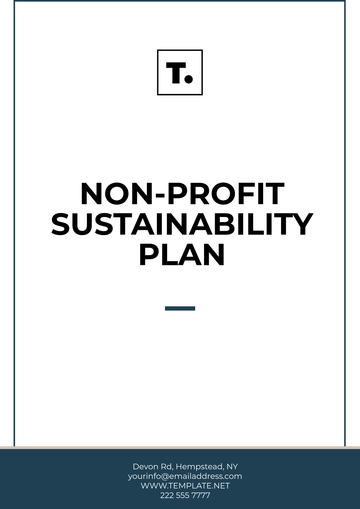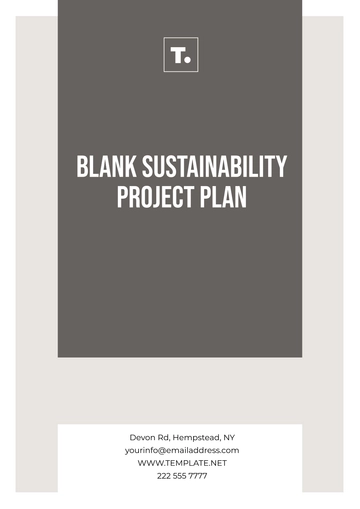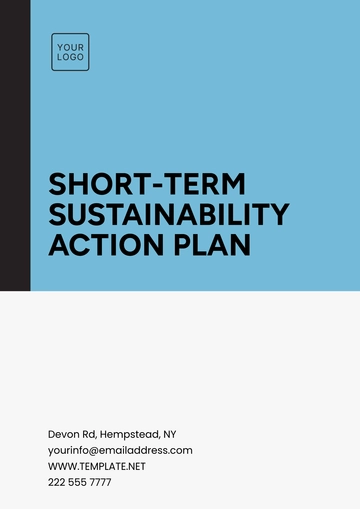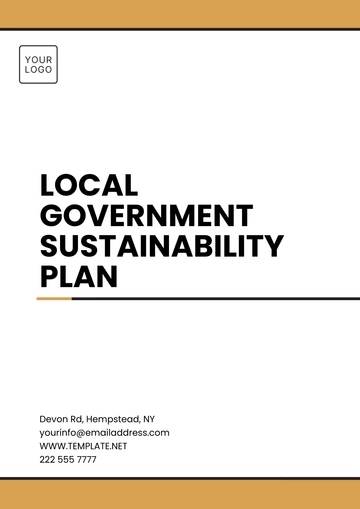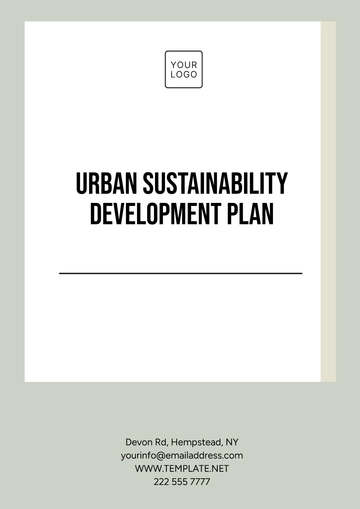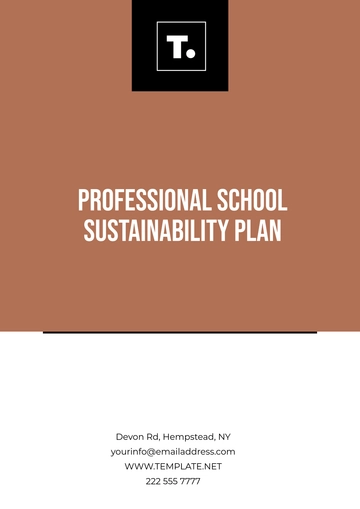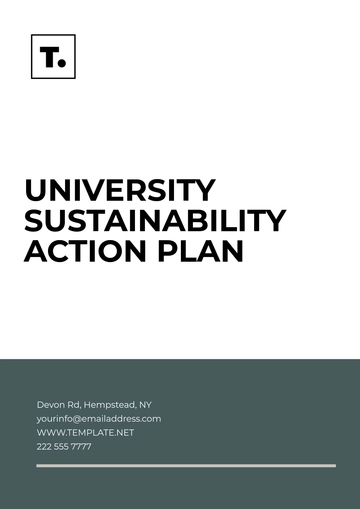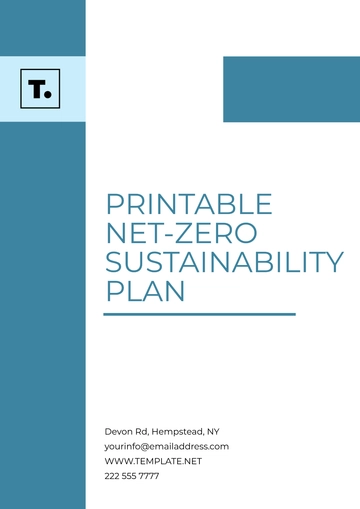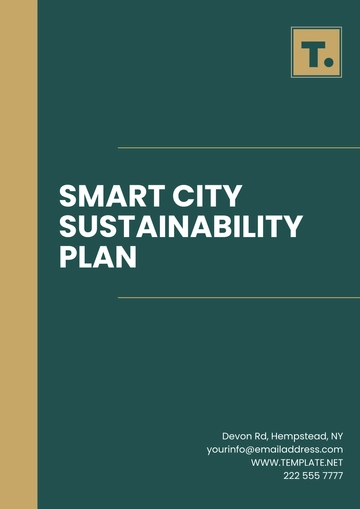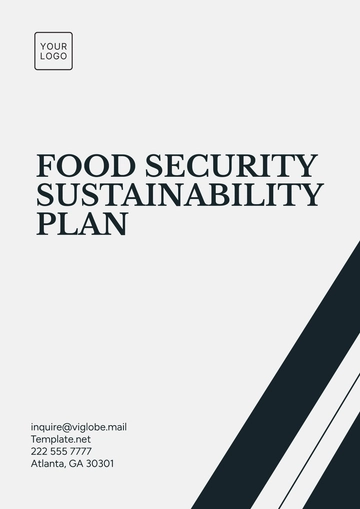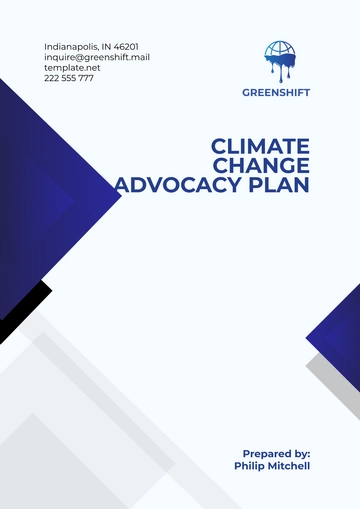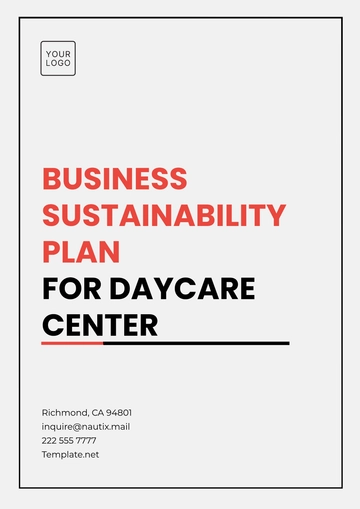Free Business Sustainability Plan for Daycare Center
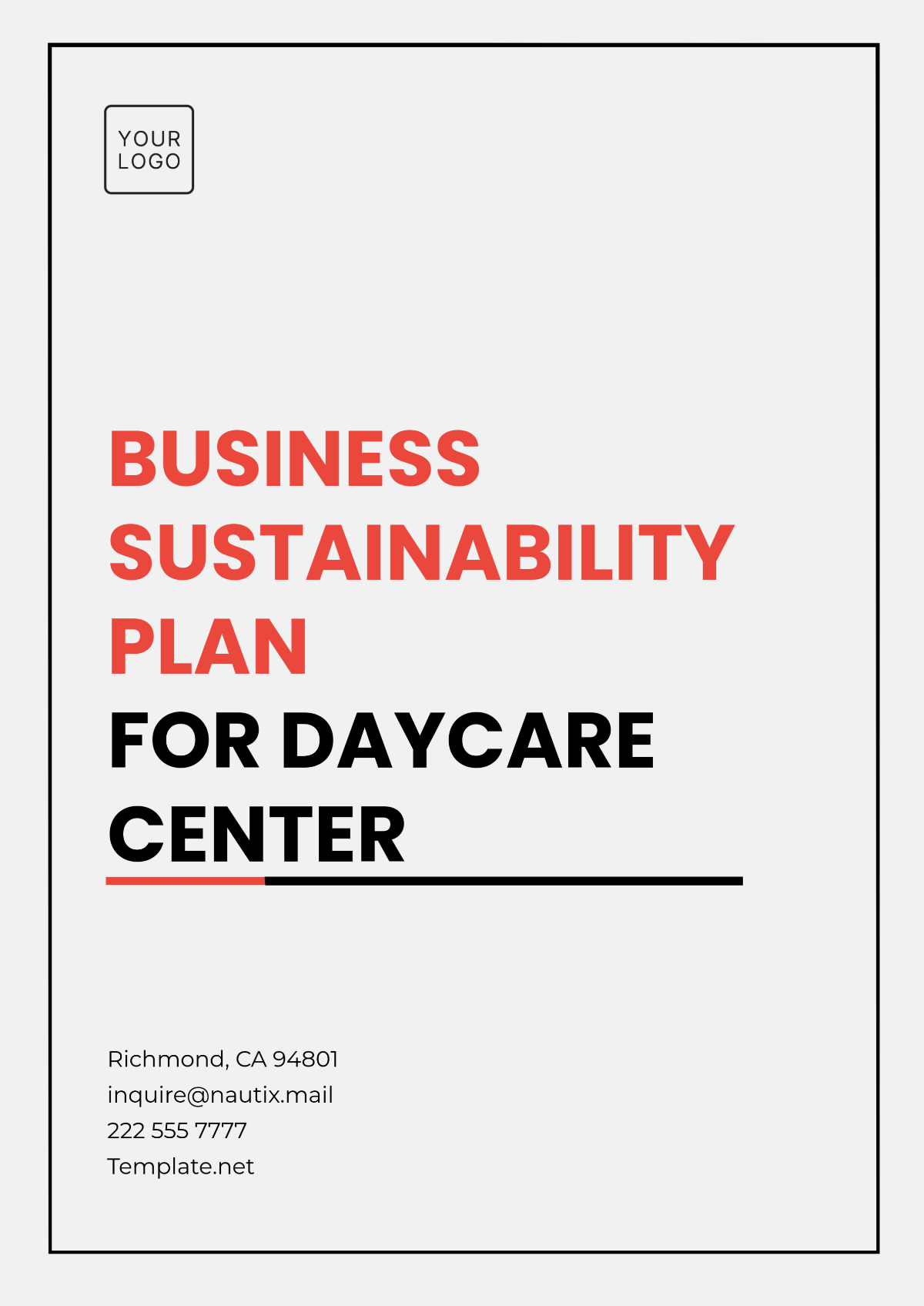
Prepared by:
[Your Name]
[Your Company Name]
Introduction
This Business Sustainability Plan for [Your Company Name] outlines our commitment to ensuring the long-term success and growth of our daycare center through responsible environmental, social, and financial practices. This plan incorporates strategies for sustainability that aim to reduce our environmental footprint, improve operational efficiency, and foster a positive impact on the community we serve while maintaining a profitable and thriving business.
Mission Statement
At [Your Company Name], we are dedicated to providing a safe, nurturing, and educational environment for children while prioritizing sustainability. Our goal is to implement eco-friendly practices, foster social responsibility, and maintain financial stability, ensuring that we can continue offering high-quality care and education for years to come.
Environmental Sustainability
Energy Efficiency
Energy-Efficient Lighting: Implement LED lighting throughout the daycare center to reduce energy consumption.
Smart Thermostats: Install programmable thermostats to optimize heating and cooling, ensuring comfort while minimizing energy use.
Energy Audit: Conduct regular energy audits to identify areas for improvement and further reduce energy costs.
Waste Management
Recycling Programs: Establish a comprehensive recycling program for paper, plastics, and electronics to reduce landfill waste.
Composting: Set up a composting system for food scraps from meals and snacks served at the daycare.
Minimal Paper Use: Transition to digital communication and record-keeping to reduce paper consumption.
Water Conservation
Low-Flow Fixtures: Install low-flow faucets, toilets, and showerheads to reduce water consumption.
Water-Efficient Landscaping: Use drought-tolerant plants and a smart irrigation system to minimize water usage in outdoor areas.
Social Sustainability
Community Engagement
Local Partnerships: Collaborate with local businesses and organizations to promote community-based initiatives and create a network of support for the daycare center.
Family Involvement: Organize events and activities that encourage family participation, such as volunteer opportunities, educational workshops, and parent-teacher conferences.
Diversity and Inclusion: Foster an inclusive environment that celebrates diversity and supports children from various backgrounds and abilities.
Staff Development
Training Programs: Offer ongoing professional development for staff to ensure they are up-to-date with the latest childcare practices, sustainability initiatives, and regulatory requirements.
Wellness Programs: Implement programs focused on staff well-being, including health and wellness benefits, mental health resources, and a supportive work environment.
Employee Recognition: Develop a system for recognizing and rewarding staff contributions to sustainability and overall daycare center success.
Financial Sustainability
Cost Efficiency
Budget Planning: Implement rigorous financial planning and budget management to ensure the daycare center remains financially stable while investing in sustainable practices.
Cost Savings from Sustainability: Track and evaluate cost savings from energy-efficient and waste reduction measures, and reinvest those savings into further sustainability efforts.
Grants and Funding: Pursue grants and funding opportunities available for businesses that implement sustainability initiatives in the childcare sector.
Revenue Generation
Sustainable Pricing: Ensure that daycare center pricing remains competitive while supporting sustainability initiatives and maintaining profitability.
Partnerships and Sponsorships: Explore partnerships with local businesses, government agencies, and non-profit organizations that align with our values and can offer additional revenue streams or sponsorships.
Marketing and Outreach: Promote our sustainability efforts to attract families who prioritize environmental and social responsibility, increasing enrollment and customer loyalty.
Monitoring and Evaluation
Key Performance Indicators (KPIs)
Energy Usage: Track reductions in energy consumption through monthly utility bills.
Waste Reduction: Monitor the amount of waste diverted from landfills through recycling and composting efforts.
Staff Retention: Measure employee satisfaction and retention rates to gauge the success of staff development and wellness programs.
Community Impact: Assess the level of community engagement through participation in local events and family involvement activities.
Reporting and Review
Annual Sustainability Report: Publish an annual report summarizing sustainability efforts, achievements, and areas for improvement.
Feedback Mechanisms: Regularly seek feedback from parents, staff, and community members to assess the effectiveness of sustainability initiatives and identify new opportunities for improvement.
Continuous Improvement: Set goals for the upcoming year based on the evaluation of current practices, making adjustments and refinements as needed.
Conclusion
At [Your Company Name], we are committed to fostering a sustainable future for our business, the children we care for, and the community we serve. By implementing responsible environmental practices, promoting social well-being, and ensuring financial stability, we aim to create a daycare center that thrives for generations to come. Through continuous monitoring, evaluation, and improvement, we will ensure that our sustainability efforts align with our mission and values and that we remain a leader in responsible childcare.
- 100% Customizable, free editor
- Access 1 Million+ Templates, photo’s & graphics
- Download or share as a template
- Click and replace photos, graphics, text, backgrounds
- Resize, crop, AI write & more
- Access advanced editor
The Business Sustainability Plan for Daycare Center Template from Template.net is fully editable and customizable, designed to help you build a sustainable business model. With sections covering eco-friendly practices, long-term goals, and financial planning, you can tailor the plan to your daycare's needs. Editable in our AI Editor Tool, it ensures a seamless and professional experience.
You may also like
- Finance Plan
- Construction Plan
- Sales Plan
- Development Plan
- Career Plan
- Budget Plan
- HR Plan
- Education Plan
- Transition Plan
- Work Plan
- Training Plan
- Communication Plan
- Operation Plan
- Health And Safety Plan
- Strategy Plan
- Professional Development Plan
- Advertising Plan
- Risk Management Plan
- Restaurant Plan
- School Plan
- Nursing Home Patient Care Plan
- Nursing Care Plan
- Plan Event
- Startup Plan
- Social Media Plan
- Staffing Plan
- Annual Plan
- Content Plan
- Payment Plan
- Implementation Plan
- Hotel Plan
- Workout Plan
- Accounting Plan
- Campaign Plan
- Essay Plan
- 30 60 90 Day Plan
- Research Plan
- Recruitment Plan
- 90 Day Plan
- Quarterly Plan
- Emergency Plan
- 5 Year Plan
- Gym Plan
- Personal Plan
- IT and Software Plan
- Treatment Plan
- Real Estate Plan
- Law Firm Plan
- Healthcare Plan
- Improvement Plan
- Media Plan
- 5 Year Business Plan
- Learning Plan
- Marketing Campaign Plan
- Travel Agency Plan
- Cleaning Services Plan
- Interior Design Plan
- Performance Plan
- PR Plan
- Birth Plan
- Life Plan
- SEO Plan
- Disaster Recovery Plan
- Continuity Plan
- Launch Plan
- Legal Plan
- Behavior Plan
- Performance Improvement Plan
- Salon Plan
- Security Plan
- Security Management Plan
- Employee Development Plan
- Quality Plan
- Service Improvement Plan
- Growth Plan
- Incident Response Plan
- Basketball Plan
- Emergency Action Plan
- Product Launch Plan
- Spa Plan
- Employee Training Plan
- Data Analysis Plan
- Employee Action Plan
- Territory Plan
- Audit Plan
- Classroom Plan
- Activity Plan
- Parenting Plan
- Care Plan
- Project Execution Plan
- Exercise Plan
- Internship Plan
- Software Development Plan
- Continuous Improvement Plan
- Leave Plan
- 90 Day Sales Plan
- Advertising Agency Plan
- Employee Transition Plan
- Smart Action Plan
- Workplace Safety Plan
- Behavior Change Plan
- Contingency Plan
- Continuity of Operations Plan
- Health Plan
- Quality Control Plan
- Self Plan
- Sports Development Plan
- Change Management Plan
- Ecommerce Plan
- Personal Financial Plan
- Process Improvement Plan
- 30-60-90 Day Sales Plan
- Crisis Management Plan
- Engagement Plan
- Execution Plan
- Pandemic Plan
- Quality Assurance Plan
- Service Continuity Plan
- Agile Project Plan
- Fundraising Plan
- Job Transition Plan
- Asset Maintenance Plan
- Maintenance Plan
- Software Test Plan
- Staff Training and Development Plan
- 3 Year Plan
- Brand Activation Plan
- Release Plan
- Resource Plan
- Risk Mitigation Plan
- Teacher Plan
- 30 60 90 Day Plan for New Manager
- Food Safety Plan
- Food Truck Plan
- Hiring Plan
- Quality Management Plan
- Wellness Plan
- Behavior Intervention Plan
- Bonus Plan
- Investment Plan
- Maternity Leave Plan
- Pandemic Response Plan
- Succession Planning
- Coaching Plan
- Configuration Management Plan
- Remote Work Plan
- Self Care Plan
- Teaching Plan
- 100-Day Plan
- HACCP Plan
- Student Plan
- Sustainability Plan
- 30 60 90 Day Plan for Interview
- Access Plan
- Site Specific Safety Plan
